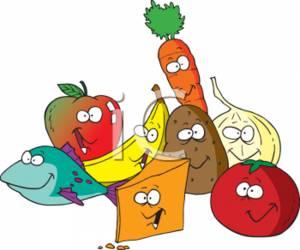Providing free online community support to people affected by breast cancer
Free Member Signup
Site Search
CHEMOTHERAPY & FOOD
The main goal before, during, and after chemotherapy is to maintain adequate calories for weight maintenance and adequate protein to optimize your immune system and strength. So eating a good diet would be considered 'sound advice!'. During chemotherapy however, foods that are usually favourites can be unappealing and there are times when you just don't feel like eating anything!.
Good nutrition intake (& eating in general) may be affected by chemo due to some common side effects, particularly to the gastro-intestinal (GI) tract. The GI tract starts at the mouth and goes all the way through to the other end, therefore it’s possible to experience dry, sore mouth, mouth ulcers, nausea, change of taste, loss of appetite, vomiting, diarrhoea and constipation.
Fatigue, low mood, anxiety and stress may also affect appetite and eating habits.
Medications to ease the effects of these symptoms are usually prescribed around each chemo treatment. Discussing how well these are working with your treatment team is very important, as the type of medication or dose may need to be adjusted to be the most effective for you.
Everyone’s experience may be different. Determining which side effects are affecting you the most is important to help with finding ways to treat them. For example, if mouth ulcers make eating too painful, using a soothing mouth gel may ease the discomfort (see 'Mouthcare during chemotherapy' in FORUM).
GENERAL TIPS:
MORE TIPS FOR SPECIFIC SYMPTOMS:
Loss of appetite for food (Anorexia)
Nausea/Vomiting
Diarrhoea
Constipation
Your treating team will usually provide you with dietary advice during chemotherapy. Discuss any specific concerns or problems you are having with them. Where available, a Dietician may also assist with advice.
We've also listed some tips from members in this section - see 'Food & Drink tips from Click Chat'.
There are many useful sites on the net, with many more tips, recipes to try and good advice. Recommended sites include Cancer Australia, Cancer Council & Breast Cancer Network Australia sites.
Please add any comments, hints or tips that worked for you .. maybe they'll work for others too!

The Click Breast Care Nurse 
Im a 32yr old mom of 4 girls 8,9,12 and 14yrs.. diagnosed Nov 2012, Grade 3, 12mm, 5mm, 1mm ER+ PR+ Her2-, 2/14 + nodes, bilateral mastectomy, chemo (FEC).. Jacque + 